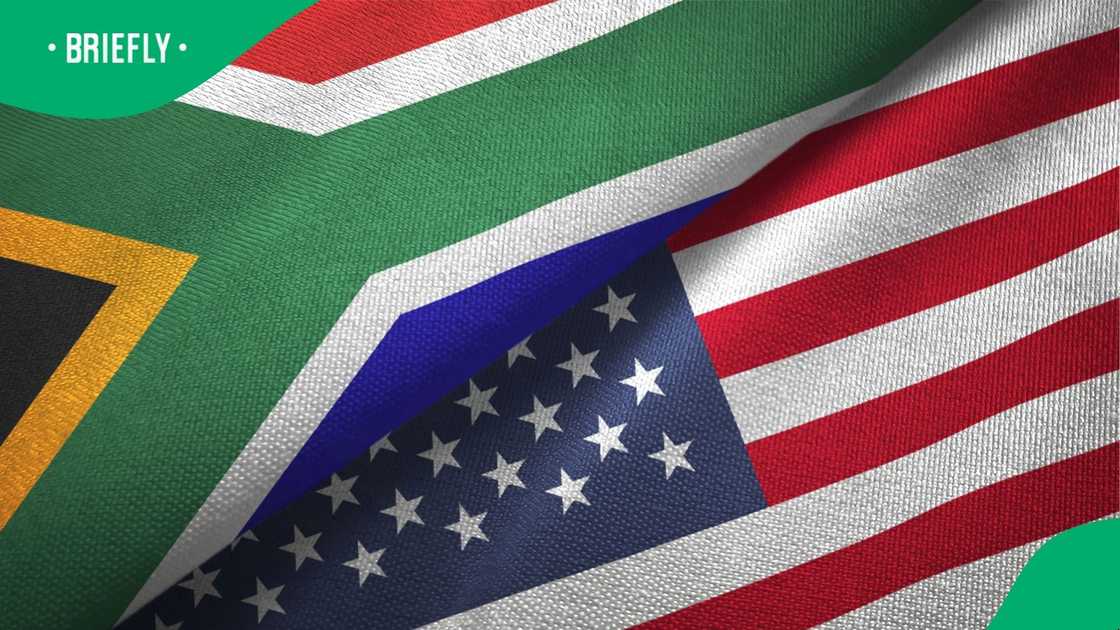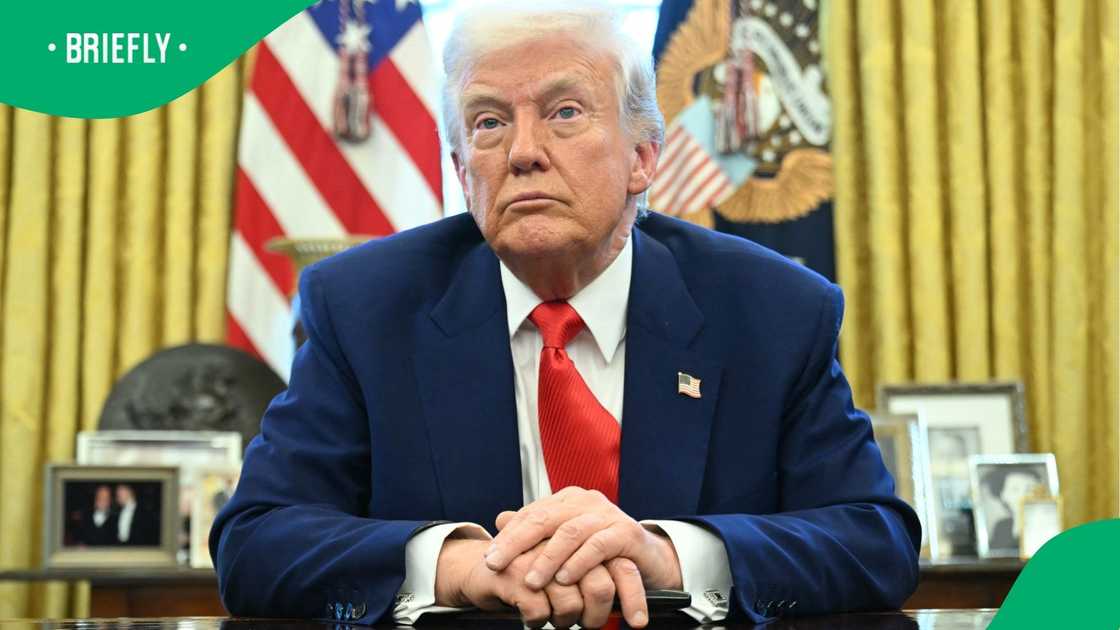How the US Tariffs Impact South Africa’s Agriculture
- It is perhaps more prudent to work on the assumption that the duty-free access to South African goods enjoyed through AGOA is over
- South Africa is likely to be started at a 10% flat tariff rate for most of its products. South Africa may lose US market share to Chile, Australia, and Brazil
- South Africa’s long-term interests will be best served by a free trade agreement with the US writes Wandile Sihlobo
Wandile Sihlobo is the Chief Economist of the Agricultural Business Chamber of South Africa and author of 'The Uncomfortable Truth About South Africa’s Agriculture (2025)', 'A Country of Two Agricultures (2023), and Finding Common Ground (2020)'. He is a Senior Lecturer Extraordinary at Stellenbosch University and a Visiting Research Fellow at Wits. Sihlobo serves on President Ramaphosa’s Economic Advisory Council, Stats SA's Council, and as a Commissioner at ITAC.

Source: Getty Images
We know now that a 10% flat tariff rate may be a starting point for most countries' products getting into the US. It remains unclear if there are differences in the remaining 20% (that makes up the rest of the 30%) duties levied against South Africa. There may be some differences product by product, but that will be clear as soon as the US authorities release more information.

Read also
"Checkers, I'm sorry for complaining": Korean man shares why Mzansi is the best country in the world
SA amongst the countries with the lowest tariffs
We also believe the 60% tariffs the US authorities argue South Africa imposes on the world are not based on sound calculations—South Africa’s average tariffs — at the Most Favoured Nations rate — average 7.4%. Indeed, some products have higher tariffs, but there are rebates to assist any country that requires relief. South Africa is arguably amongst the countries with the lowest tariffs, which some local stakeholders have previously argued was a policy mistake at the onset of South Africa rejoining the global economy after 1994, following years of isolation.
PAY ATTENTION: Briefly News is now on YouTube! Check out our interviews on Briefly TV Life now!
Free Trade Agreement
As we have always emphasised, the US accounts for 4% of South Africa’s agricultural exports, totalling US$13,7 billion in 2024. We achieved this 4% through duty-free access. In the current uncertain environment, we will face a “competitiveness” challenge from countries such as Chile, Australia, and Brazil, which face tariffs of just 10%. This will weigh on South African citrus, wine, grapes, fruit juices and nuts, amongst others.

Read also
Cyril Ramaphosa defends South Africa’s transformation laws, citizens claim it only benefits the elites
We remain convinced that in the long term, South Africa’s best option is to seek a Free Trade Agreement with the US. A reliable long-standing trade arrangement would serve the South African industries well. Kenya, which faces a far lower tariff of 10% compared to South Africa, is an example. It is currently negotiating such an agreement with the US.

Source: Getty Images
Mend relations with the US
A retaliatory approach would be ill advised. The best approach would still be to mend relations with the US and attempt to understand their misgivings about South Africa’s trade matters that landed the country in the current path of higher tariffs.
For businesses, the uncertainty will linger until there is clarity about product specifics tariffs which will help with the planning for the new environment.
Disclaimer: The views and opinions expressed here are those of the author and do not necessarily reflect the official policy or position of Briefly News.
Source: Briefly News

Justin Williams (Editorial Assistant) Justin Williams joined Briefly News in 2024. He is currently the Opinion Editor and a Current Affairs Writer. He completed his Bachelor of Arts (BA) degree in Film & Multimedia Production and English Literary Studies from the University of Cape Town in 2024. Justin is a former writer and chief editor at Right for Education Africa: South African chapter. Contact Justin at justin.williams@briefly.co.za

Wandile Sihlobo (Chief Economist of the Agricultural Business Chamber of South Africa) Wandile Sihlobo is the Chief Economist of the Agricultural Business Chamber of South Africa and author of 'The Uncomfortable Truth About South Africa’s Agriculture (2025)', 'A Country of Two Agricultures (2023), and Finding Common Ground (2020)'. He is a Senior Lecturer Extraordinary at Stellenbosch University and a Visiting Research Fellow at Wits. Sihlobo serves on President Ramaphosa’s Economic Advisory Council, Stats SA's Council, and as a Commissioner at ITAC.
